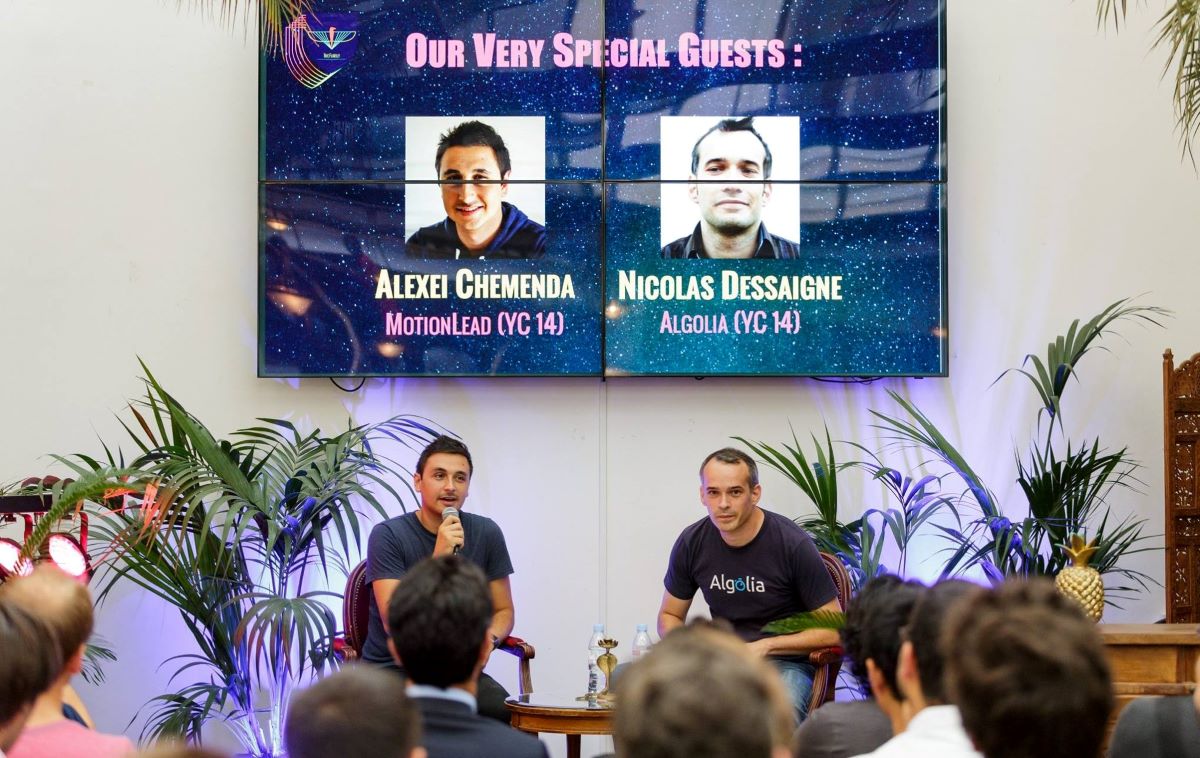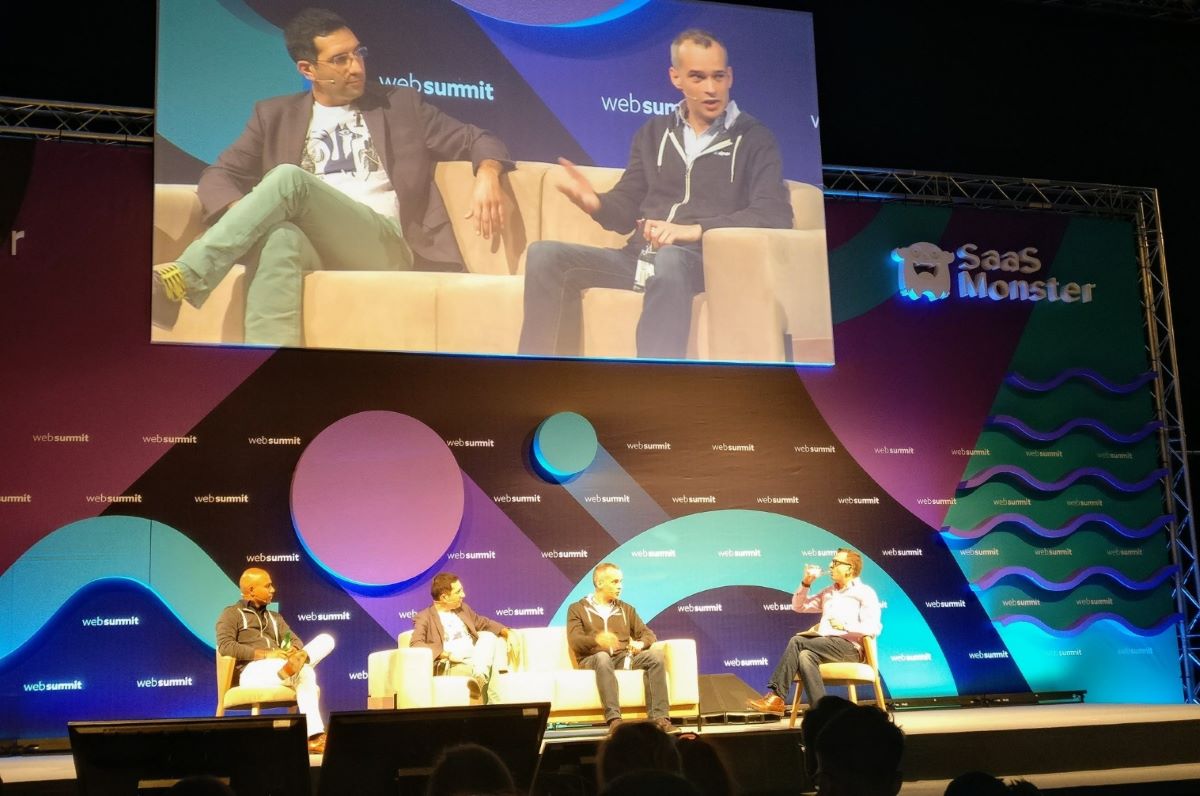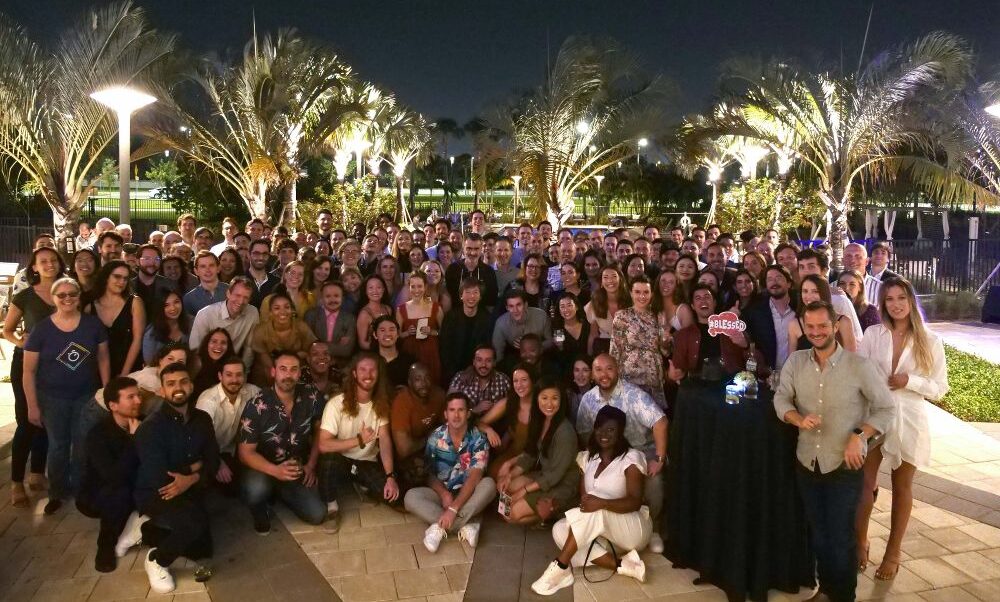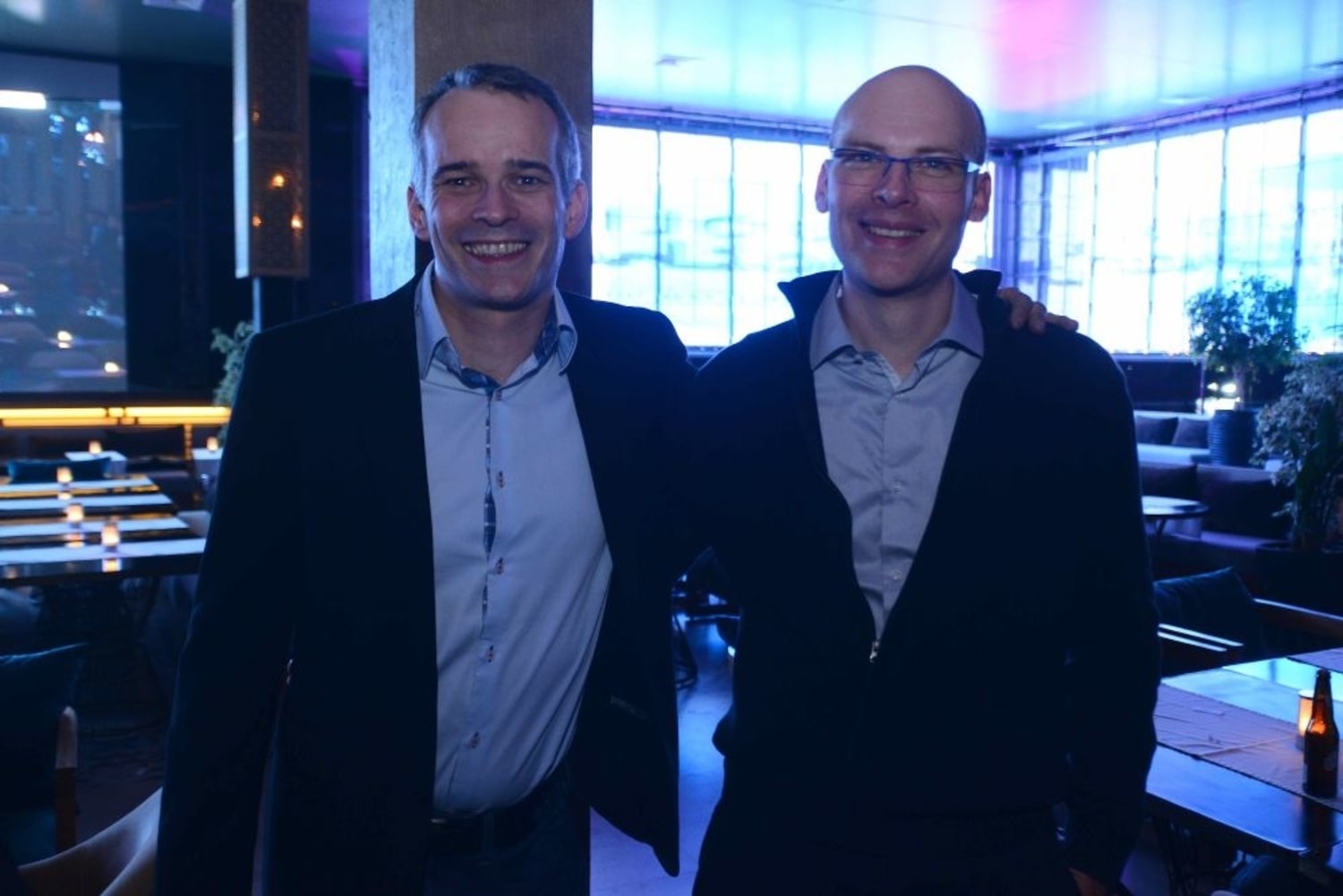How Algolia Follows Google as the 2nd Largest Search Engine for Developers
Internet users today are getting used to Google, Netflix, and Amazon experiences — and they expect to find what they are looking as quickly and effortlessly as possible. Search and discovery are at the heart of great customer experiences, connecting users with the content and services they seek. Allowing developers and business teams to build and optimize search and discovery experiences that increase online engagement, conversion rates and revenue, Algolia is on a run rate to power over 1.5 trillion search queries per year — that’s 1,500,000,000,000 if you want to see all the zeros.
Originally founded in France in 2012, the company has grown tremendously over the past few years. Algolia is now a big enterprise-focused company with a solid business. Algolia is best known for its search-as-a-service product – which let users integrate real-time search in their app or website using a developer-friendly API.
Using an Algolia-powered search feature feels like using Spotlight on a Mac. Results load with each keystroke and appear in just a few milliseconds. With Algolia, end-users are able to find and discover what they want easily across web, mobile, and voice. The company now has over 10,000 customers, including some big names, such as Slack, Stripe, Medium, Zendesk and Lacoste.
From a Strategic Leap in Entrepreneurship…
“I have always been passionate about developing products, solving problems, and building teams. My tech areas of expertise include SaaS (Search-as-a-Service), information processing (including search engines and text mining) and mobile development.” – said Nicolas Dessaigne, Algolia’s CEO and co-founder.
Before Dessaigne started Algolia with his co-founder Julien Lemoine, they had saw a void in the market — organizations did not have the technology needed to build consumer-friendly search experiences. Then they decided to enter Algolia. When they first started Algolia, they did not offer a SaaS product, but rather a mobile search engine that could be embedded into apps and used locally on the device.
The technology was great, but they did not find a clear market for it, so they pivoted to SaaS. The two founders leveraged their combined experience in this domain from previous companies to build a multi-tenant architecture built for scale. Once they made the leap from being a mobile search SDK to the search API and search-as-a-service platform they are today, they raised a seed round of funding, hired their first employees, and launched the product.
The co-founders’ vision at Algolia from day 1 has been for every business to be able to deliver the best experience possible to its users — a search and discovery experience that is lightning fast, personalized, and highly relevant — one that helps people find what they want across this digital universe and how they want via any type of device at home, at work, and on-the-go.

“To achieve this, we are focused on investing in our technology and being at the forefront of the conversational search journey, enabling customer interactions and two-way dialogue via search.” – said Dessaigne.
In short, Algolia has two types of competitors: open-source search solutions and packaged search solutions, and itself is the combination of both worlds with its SaaS platform and Search API.
…to International Scale up Strategy
In the early days, the two co-founders were just focused on refining their main value proposition and building technology that mapped to that. However, as Algolia started to have customers and traction, they realized that their potential was way bigger than they thought initially.
“If you had asked us then we would never have thought that less than 8 years later we would be 350 across the world serving billions of queries every day for thousands of customers. That is where we come in, we are helping businesses around the world to bridge that gap. That drives our technology innovation and motivates our team.” – said Dessaigne.
Their goal is to build a modern, “borderless” global company from the inside out. This requires a global mindset from the beginning. “If your organization is looking to expand, you should strategize about where your next offices, data centers and customers would be, and it is important to not limit your business to just one country or geography.” – Dessaigne explained.
They targeted the developer market, which is the same worldwide. As their search and discovery technology is a SaaS solution, customers can be anywhere. They also have always had one language across the company: English. English is the most common language across most of the western world — and this is where most of their customers and team members are from.
“Developers, our initial target, are accustomed to and often fluent in English. When we co-founded Algolia, many people in San Francisco thought of Algolia as a French company — even though we had a strong Silicon Valley presence. Meanwhile, people in France considered us an American organization. But I saw the company as a truly global entity, not French and not American.” – said Dessaigne.
Today, Algolia has 10 office locations across 5 countries and customers across 120+ countries with its SaaS platform that supports 70 languages.
“The life of a startup is like a roller coaster with a lot of ups and downs. What matters is how fast we can learn.” – Dessaigne mused.
The $150 Million Raise at $2.25 Billion Valuation

This year, Algolia has raised a $150 million Series D funding round at a post-money valuation of $2.25 billion. Compared to the Series C round from October 2019, the company’s valuation has more than quadrupled. It means that Algolia is now a unicorn with a valuation above $1 billion and its annual recurring revenue has increased by 180% year over year.
Lone Pine Capital is leading today’s funding round. Fidelity Management & Research Company LLC, STEADFAST Capital Ventures, Glynn Capital and Twilio also participated in the round. But that’s not all, some existing investors also put more money on the table, such as Accel, Salesforce Ventures, DAG, Owl Rock and World Innovation Lab.
“The future is API-first — a reality underscored by the growth seen by Twilio, Stripe, Algolia and others in the API economy. A huge part of our success has, and will continue to be, our relentless focus on developers with our PLG strategy (Product-led growth) — enabling them to build search into their websites and apps, so they create the most relevant and dynamic digital experiences.” Algolia CEO Bernadette Nixon said in a statement. “And we’re excited to continue to solve customers’ problems as we continue to expand beyond search with Algolia Recommend and Predict.”
In addition to its search API, Algolia has expanded to other real-time APIs. For instance, you can provide real-time product recommendations on your e-commerce website with Algolia Recommend. This is part of a strategy to diversify the company’s product offering.
In particular, the company is now trying to analyze the visitor’s intent to predict whether they’re likely to purchase something on not. Companies can then leverage that info to refresh content dynamically, send a push notification, display a special offer, etc.
Taking Opportunity during the COVID 19
Covid-19 has seriously affected the international economy. However, at Algolia, it has benefited from new sources of growth during the pandemic.
“We finished the fiscal year ending January 2021 with the best two quarters in its history. We have over 10,000 paying customers. Our search volume is 30 billion searches per week–1.5 trillion per year. That is four times bigger than Bing, Yahoo, and Yandex. We are second only to Google. We are growing rapidly, with over $100 million in annual recurring revenue.” – said Bernadette Nixon, CEO of Algolia.
Why Is This Company Growing?
The answer stands in how they seriously pay attention to the market’s change. There is a steep curve starting before Covid. In May 2020, the top three sources of growth were e-commerce, media, and some high technology. Now, high technology has taken over the number two slot. Algolia’s customers are also using its for their online business, and this company have been fortunate that online activity is running strong.

Algolia has also changed its pricing model based on customer feedback. As Nixon said, “We changed our business model from infrastructure-based to usage-based pricing. Customers wanted simplification. If they had a lower level of search traffic, they would pay less.”
How Algolia can keep growing rapidly – as now that it has topped the $100 million mark – depends on whether it makes the right investments in opportunities that will create growth in the future. And to find the right places to invest, companies ought to look for ways to provide customers a quantum value leap – a big increase in the benefits their product delivers for the price you charge customers.
“To figure out how to do that, observe how customers use your product and explore what’s blocking them from achieving their goals. That’s what Algolia did to craft its new vision – which is to give people what they are searching for right now”- said Nixon.
Appropriate Vision Paid Off
This vision is helping its customers boost sales. As Nixon told, “People don’t want to forage -they want to get to it quickly.” Algolia takes this insight by speeding up the search by predicting the user’s intention. This company give users a dynamic experience that anticipates and recommends by understanding what they’re looking for – not just where they’re from. This approach drives 20 percent to 30 percent increases in conversion rates.
What’s more, Algolia’s vision responds to the recent pressure from Apple to remove cookies as a way to track and market to consumers searching online. Without cookies, companies can no longer spend months personalizing their sites for each consumer. Instead, the winners will be e-commerce providers that deliver the right search results fastest.
To craft that clear, practical, and aspirational vision, Algolia followed the customer.
“To develop the vision, we spoke with many customers. We couched our idea in the words they were using. What do we do for them today? How has Algolia changed their life? How has it become more relevant today? What’s holding them back from achieving their goals?” – said Nixon. By understanding their customers as well as the market trends, Algolia is able to give out the best solutions.
Keys to Build a Long-Term Company

In 2020, its co-founder and CEO Nicolas Dessaigne decided to transition to a non-operational role. The company has recruited quite a few senior executives over the past 18 months — Michelle Adams (chief revenue officer, formerly of Dropbox), Carlton Baab (chief financial officer, formerly of Alfresco), Piyush Patel (chief business development officer, formerly of Capgemini), Jim Schattin (chief customer officer, formerly of Alteryx), Jason McClelland (chief marketing officer, formerly of Salesforce and Adobe) and Bharat Guruprakash (chief product officer, formerly of Twilio).
As you can see, it’s a long list of talented people, which means that Algolia is focused on building a long-term company instead of building cool technology and optimizing for an acquisition. To achieve this target, Algolia also has its own sauces.
#1: Focusing On Building a Culture-First Company
Focusing on building a culture-first company and having clarity on the values that they wanted their company and people to stand for is one of the first things that Algolia’s co-founders did: they define those specific values in writing then share them with their team. At Algolia, their five values are: grit, trust, care, candor, and humility.
After having articulated their values, they built the company around these principles, and hired people based on these values – one set of core values only. They did not need to adapt their values to different geographies, despite the fact that they have offices in multiple countries.
“These principles inform our hiring practices and day-to-day business operations.” – said Dessaigne.
#2: Improving the Customer Experience
“In my experience, the businesses that survive (and thrive) are those that integrate software into every aspect of their business, including their communications with, and experiences provided to, customers.” – Dessaigne explained.
That’s why Algolia sees key developments taking shape along the conversational search journey, including better personalization, improvements within AI-powered search and a better understanding of users. This consumerization of the enterprise will continue to influence the search journey, and more businesses will look closely at their user experience and begin to further invest in search.
The Bottom Lines
Being sensitive to changes in the market it serves, Algolia is on tremendous development over the past few years. How this company is taking advantages of technology in the API economy is becoming an inspirational story for other entrepreneurs.









